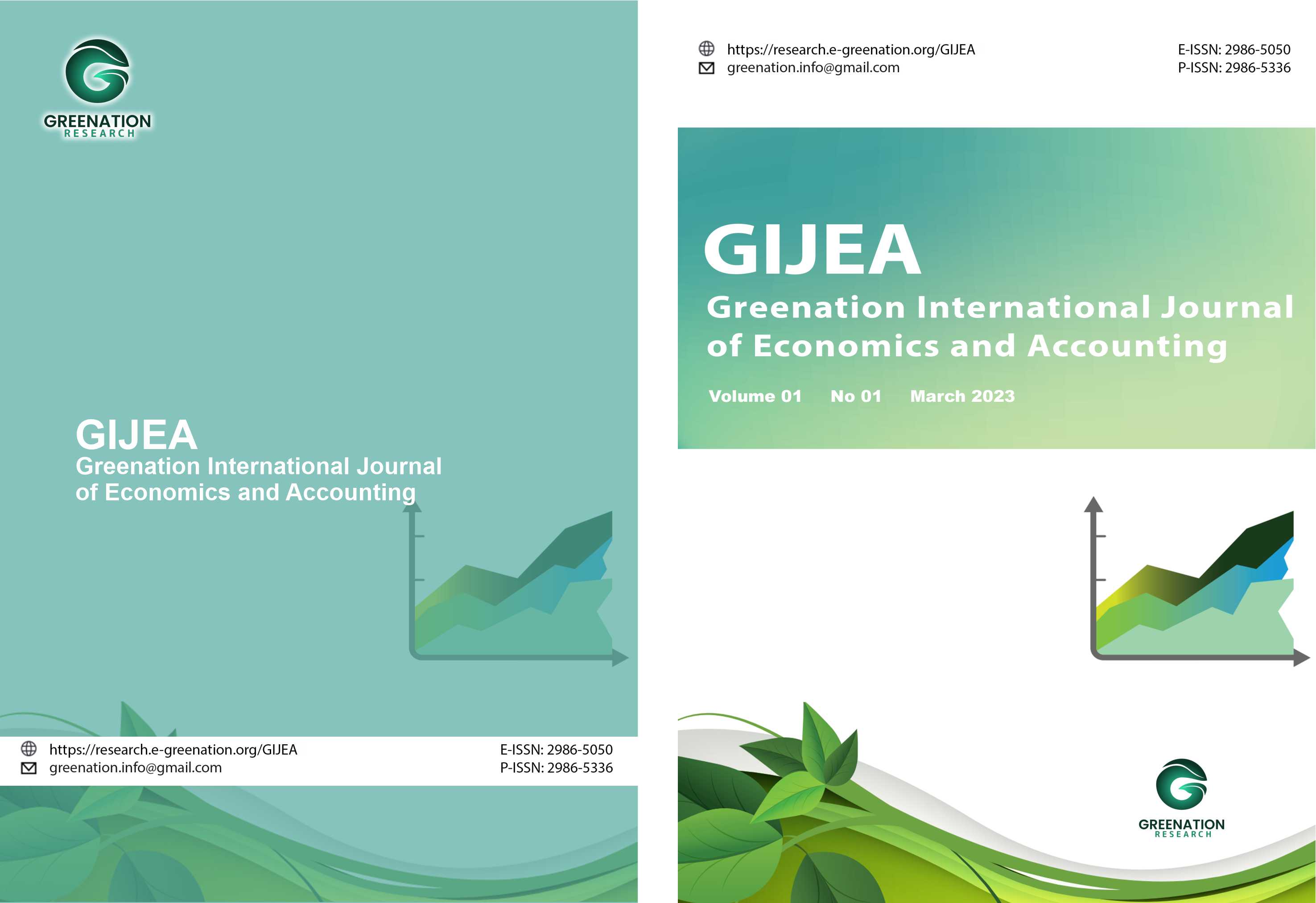The Effect of Marketing Mix ‘7P (Product, Price, Place, Promotion, People, Process, and Physical Evidence) on Customer Loyalty of Nasi Jamblang Bu Nur Cirebon
DOI:
https://doi.org/10.38035/gijea.v2i1.157Keywords:
Effect, marketing mix, customer loyalty, nasi Jamblang, bu NurAbstract
Research on the effect of the marketing mix on customer loyalty has been conducted before in various business contexts. In the context of this study, UKM Nasi Jamblang Bu Nur was chosen because it is one of the rice stalls that is quite famous in Cirebon and has a long history. Nasi Jamblang Bu Nur is included in the category of suitable variables in the marketing mix. This shows that Nasi Jamblang Bu Nur has done an excellent job implementing the Marketing Mix with Product, Price, Place, and Promotion indicators, especially those related to product indicators. On the other hand, promotion indicators still require improvement. In Nasi Jamblang Nur, the Customer Loyalty Variable is included in the Very Good group. This indicates that Nasi Jamblang Nur customers are loyal to using Nasi Jamblang Nur for their needs. This is indicated by signs such as often buying the same product, buying many items, referring friends, and difficulty moving to competing products or other products. The marketing mix positively influences customer loyalty, so any increase in the marketing mix that includes indicators of place, price, product, and promotion is not will increase customer loyalty. Customer loyalty will decrease if the marketing mix decreases.
References
Amalia, F., et.al. (2022). Development Economics. Bandung: Penerbit Widina Bhakti Persada Bandung.
Awad, R. (2021). BDS as the baseline of solidarity: toward a model of co-struggling with Palestinians in their movement for justice and liberation (Vol. 14, Issue 3).
Barkay, T., & Shamir, R. (2020). Israel vs. BDS: corporate social responsibility and the politics of human rights. Globalizations, 17(4), 698–713. https://doi.org/10.1080/14747731.2019.1689689
Fernanda, A. A., Susiatiningsih, H., & Alfian, M. F. (2022). The Boycott of French Products as a Response to Carlie Hebdo Magazine and Islamophobia in France. Journal of International Relations Universitas Diponegoro, 8(3), 448-461.
Indah Mentari, C., Wahyuni, F., Rahmadani, P., & Rindiani, W. A. (2023). The positive impact of boycotting foreign products on the growth of local products (Indonesia). 2. https://doi.org/10.8734/mnmae.v1i2.359
Khoirudin, R., Ismaulida, A., & Khasanah, U. (2023). Analysis of factors affecting economic growth in Indonesia. Journal of Global and Multidisciplinary, 1, 407–416.
Lustick, I. S., & Shils, N. (2022). The Palestinians, Israel, and BDS Strategies and Struggles in Wars of Position. Israel Studies Review, 37(3), 28–57. https://doi.org/10.3167/isr.2022.370303
Oktavia, O., Noval, M. R., Hanipah, R., & Handayani, M. F. (2024). The impact of boycotting American products on the Indonesian economy. Jurnal Mutiara Ilmu Akuntansi, 2(1), 318-323.
Rahmani, A. N. (2023). Impact of the Israeli-Hamas War on Stock Prices and Public Buying Interest in Israeli-Supporting Products. In AoEJ: Academy of Education Journal (Vol. 14).
Risqi, M., Septiazi, F., & Yuliana, N. (2023). Analysis of the Influence of Social Media on the Boycott Movement of Israeli Products in Indonesia. Triwikrama: Jurnal Multidisiplin Ilmu Sosial 2(4), 2023–2054.
Simanjorang, B. M., SyahPutra, B. A., Husin, M. H., Bangun, I. B., Zawani, N., Siburian, T. D. N., & Perangin-Angin, Z. G. (2023). The Influence of the Palestinian Conflict with Israel on the Hamas Resistance Movement and Its Impact on Indonesia. Mediation: Journal of Law, 24-30.
Sudarsono, H. (2008). Study the Impact of Boycotting American Products on the National Economy. Unisia, 31(70) 417-430.
Suyanto., Tanaya, O., Wibowo, J. M., & Astanto, T. J. (2022). International Business: Contemporary Strategies and Challenges. Surabaya: Directorate of Publishing and Scientific Publications, University of Surabaya.
Younes, F. (2019). The Growth and Impact of the BDS Movement: Linking Local to Global Context. Confluence, 1(1) 39-51.
Zulian, I. (2018). The role of the World Trade Union against Israeli apartheid violence in Palestine. Jurnal PIR: Power in International Relations, 2(2), 114-131.
Downloads
Published
How to Cite
Issue
Section
License
Copyright (c) 2024 Indi Nirawati, Jimmy Hasoloan

This work is licensed under a Creative Commons Attribution 4.0 International License.
Copyright :
Authors who publish their manuscripts in this journal agree to the following conditions:
- Copyright in each article belongs to the author.
- The author acknowledges that the GIJEA has the right to be the first to publish under a Creative Commons Attribution 4.0 International license (Attribution 4.0 International CC BY 4.0).
- Authors can submit articles separately, arrange the non-exclusive distribution of manuscripts that have been published in this journal to other versions (for example, sent to the author's institutional repository, publication in a book, etc.), by acknowledging that the manuscript has been published for the first time at GIJEA.
























